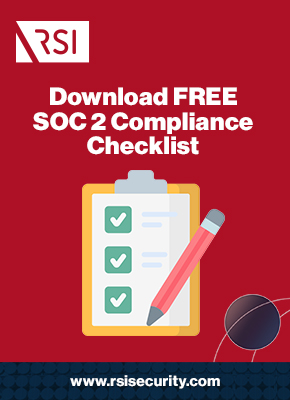If your organization engages in business activities with other clients, partners, or customers, you may benefit from the attestation services governed by the AICPA. SOC 2 Type 1 and Type 2 audits are helpful in providing trust assurance about your internal data security and risk management controls. Read on to learn more.
Your Guide to Attestation Services and SOC 2 Audits
To maximize the effectiveness of attestation services, it helps to understand what they are and how they help your organization optimize internal controls. To that end, this blog will discuss:
- The AICPA’s attestation services and how they build trust assurance
- Which non-attestation services may apply to your organization
- A breakdown of SOC 2 Type 1 and Type 2 audits
Compliance attestation helps minimize integrity and privacy risks and reduces the potential for business disruption, especially when partnering with an AICPA attestation services provider.
What are the AICPA’s Attestation Services?
In general, the attestation services governed by the American Institute of Certified Public Accountants (AICPA) help service organizations demonstrate their commitment to keeping sensitive data safe from security risks in the business environment. To do so, AICPA provides resources to help these organizations achieve compliance attestation across frameworks.
These attestation services include:
- SOC 1 audits – Organizations required to report on their internal financial controls to specialized audiences (e.g., clients) can use SOC 1 audits to evaluate the effectiveness of these controls. These audits comprise two types of reports:
- SOC 1 Type 1 audits assess control design and effectiveness at a specified time
- SOC 1 Type 2 audits assess control design and effectiveness over a duration
- SOC 2 audits – These audits help service organizations report on the effectiveness of internal controls to stakeholders like clients and business partners. SOC 2 audits consist of Type 1 and Type 2 audits (see below) and are based on the AICPA’s Trust Services Criteria (TSC), namely:
- Security
- Availability
- Processing Integrity
- Confidentiality
- Privacy
- SOC 3 audits – These audits are designed to provide assurance to much broader, generalized audiences like customers who may not have the knowledge or expertise to understand the technicalities of SOC 2 reports. SOC 3 reports may also be made publicly accessible on an organization’s website.
- SOC for Cybersecurity audits – Organizations looking to demonstrate the effectiveness of their cybersecurity controls can leverage the SOC for Cybersecurity reports, which report on aspects of security risk management.
- SOC for Supply Chain audits – For organizations that heavily rely on supply chains to provide goods or services to their customers, clients, or other stakeholders, SOC for Supply Chain reports can help evaluate the management of cybersecurity risks related to supply chains.
Conducting the right attestation services will help your organization optimize internal controls and assure stakeholders about their robustness, reliability, and security.
Assess your SOC 2 compliance
Do Non-Attestation Services Apply to Your Organization?
In some instances, your organization may require a special category known as non-attestation services. These typically apply to audits for specific activities, such as:
- Preparation of financial statements and tax returns
- Cash-to-accrual conversions
- Statement reconciliations
According to the AICPA, these are services “that are not specifically related to the performance of an attest engagement.” If you currently rely on attestation services to evaluate your internal controls, any non-attestation services you receive may be subject to different rules than those for the attestation ones. To minimize attestation risk when preparing for non-attestation and attestation services, it is critical to partner with an experienced SOC 2 compliance specialist who understands the ins and outs of these engagements.

Overview of SOC 2 Type 1 and Type 2 Audits
Considering the extent of trust assurance they provide about data security, SOC 2 audits tend to be the most popular attestation services.
On one hand, if you are looking to evaluate your internal control design at a specific time, SOC 2 Type 1 audits will apply. These engagements assess the suitability of these TSC-based controls and point out how functional they are. On the other hand, SOC 2 Type 2 audits review control design and effectiveness over a specified period. As such, these audits are more rigorous and will reveal how well your internal controls work over extended periods.
The decision between SOC 2 Type 1 or Type 2 audits comes down to the level of insight you’d like about your controls—and the level of assurance you’re interested in providing stakeholders.
Some organizations choose to start with SOC 2 Type 1 engagements and build on a Type 2 audit afterward. It is best to consult with a trusted SOC 2 partner when making these decisions.
Prepare for SOC 2 Audits and other Attestations
Optimizing your internal controls to the standards required by the SOC 2 framework will keep you on track for SOC 2 audits and subsequent certification. However, you will likely benefit from the guidance of an attestation services provider like RSI Security to streamline the entire process. To learn more, contact RSI Security today!
Download Our SOC 2 Compliance Checklist
 |
